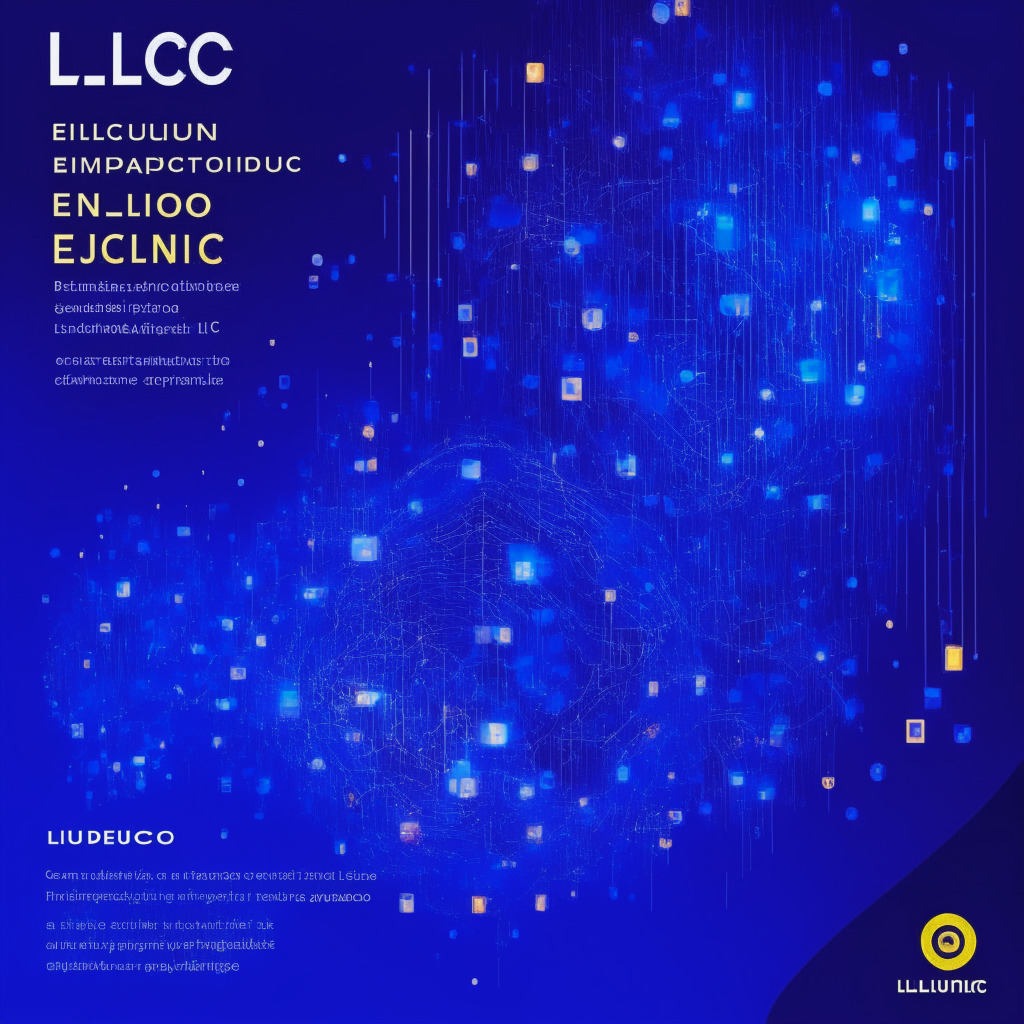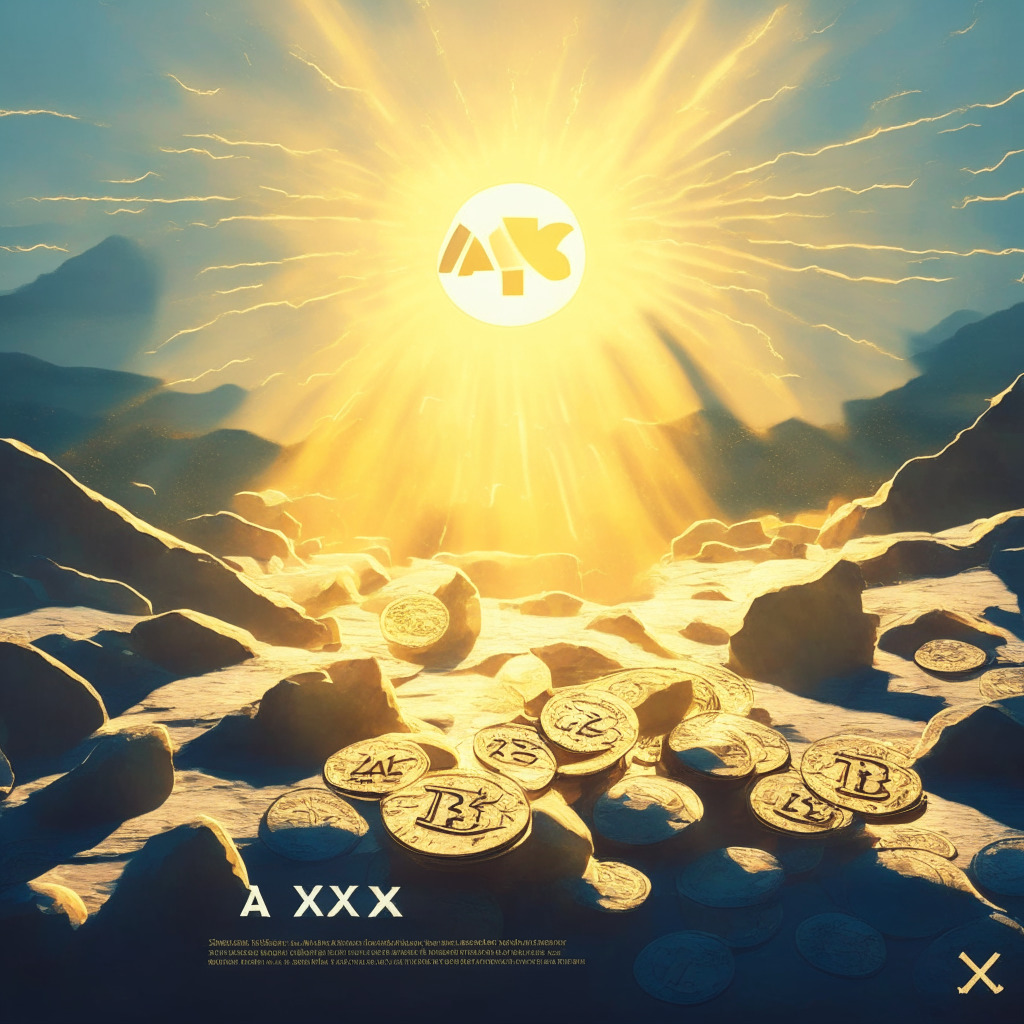The U.K. Financial Conduct Authority is offering firms access to a digital sandbox for testing their products’ early-stage performance. The sandbox provides datasets, APIs, and data security protection. This initiative helps firms evaluate products, supports various digital-asset use cases and fosters an ecosystem of integration within the digital economy. The sandbox’s broader availability piques crypto enthusiasts’ interest, prompting discussions around blockchain technology’s future.
Search Results for: Distributed Ledger Technology
Exploring the Digital Pound: Ledger Technologies, Privacy, and Public-Private Collaboration
The Bank of England is progressing with its Central Bank Digital Currency initiative, exploring multiple ledger technologies including blockchain for the digital pound. The privacy-focused design prioritizes user privacy and involves collaboration between public and private sectors, highlighting the importance of evolving financial landscape and global shift towards digital currencies.
HSBC Recognizes Ripple’s XRP Ledger: Game Changer or Regulatory Minefield?
HSBC, one of the world’s largest banks, highlights Ripple’s XRP Ledger as a game changer in the financial sector for real-time cross-border settlements. Despite ongoing legal challenges with the U.S. Securities and Exchange Commission, Ripple’s global expansion and strong YTD increase suggest potential success but warrant caution in navigating regulatory issues and broader concerns.
Transforming Bond Markets: Tokenization Prospects & Challenges in Hong Kong
The Hong Kong Monetary Authority is exploring the benefits and challenges of tokenizing bonds, a process aligning with existing legal infrastructure and improving operational efficiency via a common Distributed Ledger Technology platform. However, the report cautions that tokenization’s adoption is still in its “infancy”, with obstacles like aligning financial institutions on common solutions and updating legal regulations. This development frames Hong Kong’s shift towards becoming a crypto hub.
Harnessing Tokenization: HKMA’s Bold Steps and Uncharted Terrains in Bond Markets
“Hong Kong Monetary Authority (HKMA) has issued a $100 million tokenized green bond, proving the feasibility of Distributed Ledger Technology (DLT) in capital market transactions. DLT could help improve transaction speed, market fluidity, and transparency in bond markets. However, challenges of fragmentation across platforms, systems, and regulatory frameworks still demand attention.”
Decoding Federal Reserve’s Stance on DLT: Is It an Endorsement or Bare Necessity?
“Distributed Ledger Technology (DLT) becomes increasingly significant in financial future with FedNow featuring Dropp, a micropayments platform built on Hedera Hashgraph DLT. However, the Federal Reserve’s stance remains neutral, neither supporting nor endorsing DLT-powered companies, eliciting polarized opinions from the crypto community.”
Unmasking Tech Giants: Are Apple’s App Store Policies Stifling Crypto Innovation?
“Recent actions in the technology sector highlight the relationship between tech giants and blockchain and nonfungible tokens (NFTs). A probe into Apple’s App Store policies by US lawmakers aims to analyze if these guidelines indirectly slow technological progress. The lawmakers raise concerns about the impact of Apple’s rules on innovations like distributed ledger technology and NFTs, and potential negative consequences on the US’s status in emerging technology.”
Decoding French Central Bank’s Wholesale Digital Currency: An Overview and the Environmental Paradox
The French Central Bank highlights the potential of a wholesale central bank digital currency (wCBDC) to improve the safety, settlement certainty, and efficiency of cross-border transactions. It reports successful tests of wCBDC paradigms based on distributed ledger technology (DLT) and foresees benefits for native digital and tokenized assets. The bank also emphasizes the need for energy-efficient solutions amidst global sustainability concerns.
South Korea’s Stablecoin Feasibility Test, US Crypto Mining Firm Lawsuit, and the NEAR Foundation’s Green Pledge
Shinhan Bank in South Korea successfully carried out a feasibility test for stablecoin remittance payments using Hedera’s distributed ledger technology. Meanwhile, US crypto mining firm Marathon Digital faces legal action for alleged regulatory infringements. Cronos partners with gaming giant Ubisoft, while the NEAR Foundation pledges commitment to the Ethereum Climate Platform. Also, crypto exchange Bitget reports strong growth and Crucible offers a blockchain-based SDK for game developers.
EUIPO Trials Blockchain Solution to Combat Counterfeiting: Hype or Hope?
The European Union Intellectual Property Office (EUIPO) recently discovered promising potential in blockchain-based anti-counterfeiting tools after trials involving brands, logistics, and border control. Utilizing distributed ledger technology, an open-source platform is being developed to track products and verify their authenticity, potentially reducing counterfeit market and protecting consumers and businesses.
SEC’s DeFi Exchange Definition Change: Unintended Consequences and Industry Backlash
The Blockchain Association challenges the SEC’s proposed exchange definition change, arguing that it discriminates against decentralized protocols, imposes greater burdens on distributed ledger technology-based companies, and may drive innovation away from the US. The proposal raises concerns about fair notice, constitutionality, and violation of the Administrative Procedures Act.
Crypto’s Dark Side vs. Saving Humanity: The Blockchain Dilemma Explained
Despite witnessing crypto’s darker side, former “crypto cop” asserts that distributed ledger technology is the most important innovation of our time, offering potential for decentralized, peer-to-peer monetary systems. Recognizing its unparalleled potential, it’s crucial to ensure the continued growth and innovation of blockchain technology while combating nefarious uses.
Japanese Banks Embrace Stablecoins: Will US Institutions be Left Behind?
Japan’s recent legal framework for stablecoins signals a move towards bridging traditional and decentralized finance, while the US faces regulatory hurdles and uncertainty. Japanese banks are now preparing to issue stablecoins as the country embraces distributed ledger technology for faster, cheaper payment systems.
Embracing Blockchain: Decentralized Future vs. Environmental Impact & Regulatory Challenges
“In recent news, growing interest in cryptocurrencies sparks significant movement towards blockchain adoption. This secure, distributed ledger technology disrupts traditional financial systems and processes, making them more accessible, secure, and efficient. However, challenges include vast energy consumption, impact on traditional financial institutions, and the need for appropriate regulation.”
Digital Euro: Balancing Innovation, Privacy, and Skepticism in the CBDC Race
The European Central Bank (ECB) finalizes digital euro prototypes, potentially boosting innovation while remaining skeptical about adopting Web3-style distributed ledger technology and smart contracts. With the European Commission set to publish a bill covering privacy safeguards in June, the digital euro could significantly impact the global financial scene.
Axie Infinity Soars, Bitcoin Struggles: Exploring the Conflicting Crypto Markets and Regulations
Axie Infinity’s native cryptocurrency AXS rallied 12% after its debut on the Apple app store, attracting new users to the play-to-earn project. Meanwhile, France welcomes US crypto firms seeking regulatory predictability, and a GFMA report suggests distributed ledger technology could save $100 billion annually in securities markets.
DLT in Securities Markets: $100 Billion Savings, Challenges, and the Need for Global Cooperation
The Global Financial Markets Association highlights the potential of distributed ledger technology (DLT) in securities markets, suggesting that its implementation could result in over $100 billion in annual savings and enhance industry growth and innovation. Embracing DLT opportunities in areas like collateral management, asset tokenization, and sovereign bond markets with robust regulatory oversight is crucial for realizing its full potential.
New Twitter CEO’s Crypto Fandom: Will DOGE and SHIB Shape Platform’s Future?
Linda Yaccarino’s appointment as Twitter CEO sparks excitement in the crypto community due to her following of meme-inspired coins Dogecoin and Shiba Inu. As the platform’s future developments remain uncertain, enthusiasts anticipate potential collaboration with Elon Musk and integration of cryptocurrencies or distributed ledger technology.
China’s National Blockchain Centre: Bridging Gaps & Navigating Centralization Risks
The National Blockchain Technology Innovation Centre in Beijing has officially commenced operations, aiming to advance blockchain implementation in China through collaboration with universities, think tanks, and businesses. The Centre intends to train 500,000 specialists in distributed ledger technology and accelerate the construction of ultra-large-scale blockchain computing power clusters for industry innovation and competitiveness.
US National Strategy: Embracing DLT and Digital Identity, Impact and Concerns
The White House’s national standards strategy identifies distributed ledger technology (DLT) and digital identity infrastructure as having significant economic impact potential. The strategy aims to bolster US leadership in developing international standards for emerging tech sectors and promote global standards through private sector synergies. DLT holds promise for cybersecurity and privacy-centered features and services.
Navigating the Waters of Real-World Asset Tokenization: Insights from Backed’s Latest Launch
“Swiss entity Backed has launched its latest product, bIB01, on the Base blockchain, offering a digital engagement tool for traditional finance enthusiasts. Backed’s tokenized securities, or bTokens, represent real-world assets like corporate bond ETFs and treasury ETFs. Despite limitations for US-based investors, this marks an intriguing merger of traditional assets with digital technology.”
Blockchain’s Future: How Backed Finance Tokenizing Government Bonds Challenges the Status Quo
“Backed Finance has launched the world’s first tokenized government bond on the Base network, marked as blB01. This innovative move provides investors with a way to monitor the value of the asset without direct exposure. However, due to unclear regulations, it remains inaccessible to U.S. investors.”
EU’s New Crypto Regulatory Outlook: Balancing Sustainability, Transparency, and Market Growth
ESMA’s latest consultation paper on Markets in Crypto Asset regulation aims at integrating the crypto market by 2024, focusing on sustainability, consistency in crypto services, transparency in pre, and post-trade data, record-keeping by CASPs and accessible white papers. The initiative stresses environmental sustainability, encourages business continuity policies, and emphasizes real-time transparency in transactions.
Sygnum Singapore’s Digital Breakthrough: Unpacking the Pros and Cons of Singapore’s Sieve-Like Crypto Compliance
Sygnum Singapore, a subsidiary of the Swiss-based crypto bank, has secured its Major Payment Institution License from the Monetary Authority of Singapore. The license enables Sygnum to provide regulated digital payment token brokerage services, breaking previous transaction limits, and paving the way for potential expansion into Asia-Pacific markets.
Understanding the Steady Surge and Potential Challenges in Blockchain Mining and Tokenization
“In the evolving world of blockchain, Bitfarms, a leading Bitcoin miner, intensified its mining operations in September, producing over 400 bitcoins. However, the company’s mining rate decreased compared to the previous year, illustrating a challenging mining environment. Meanwhile, UBS bank launched a pilot of a tokenized fund, emphasizing further advancements in blockchain and cryptocurrency space.”
Ethereum’s Real-World Ascent: UBS Tokenization and What It Means for Blockchain Future
“UBS bank launches a live pilot of a tokenized money market fund on Ethereum, aiming to democratize market liquidity. The project brings together traditional financial institutions and fintech providers. However, tokenization faces challenges such as asset valuation transparency and blockchain complexity.”
Google Cloud’s Role as a Polygon Validator: Implications and Confrontations in Decentralization
Google Cloud’s partnership with Polygon, an Ethereum Layer 2 protocol, strengthens the growing trust in blockchain’s role in our digital future. Google’s entry as a validator bolsters security, and implicates its infrastructure employed by high-traffic platforms, as part of web3 collaborations.
Revolutionizing Crypto Trading: A Call for Enhanced Regulation and Standards in the Crypto-sphere
The World Federation of Exchanges (WFE) suggests stronger regulation to boost the credibility and safety of crypto-asset trading platforms (CTPs). However, concerns linger as practices like CTPs trading against their customers exist. Interestingly, the WFE is inclined towards embedding transparency through regulation, hence flagging the need for standards and regulation in the crypto markets.
Harnessing the Power of AI in Cryptocurrency: A Deep Dive into RNDR, Fetch.ai, and yPredict
“The blending of AI and cryptocurrencies like the Render Token and Fetch.ai projects leverage machine learning and blockchain technology, optimizing efficiency, and creating new opportunities. However, remember investing in crypto carries potential risk of capital loss.”
Revolutionizing Business: Blockchain, AI and the Imminent Threat to Conventional Industries
“AI and blockchain technologies are set to restructure established sectors and create new markets, driving economic growth through task automation and modernising payment systems. However, they also pose risks, and their benefits may take another decade to materialise. Also, the migration of NFTs indicates belief in Bitcoin’s promise, though Ethereum still dominates the NFT market.”
Revolutionizing Financial Markets with AI and Blockchain: A Double-Edged Sword?
“Blockchain and AI could revolutionize the financial markets, potentially lowering costs and modernizing payment systems. However, they demand upfront investment and may initially inflate IT expenses. Risks like tax evasion and money laundering must also be kept in check. Despite hurdles, the full potential of these technologies is still unfolding.”
Digital Yuan to Dominate Retail Platforms: A Chance or Challenge for Crypto Evolution?
“The Bank of China declared retail platforms should offer digital yuan as a payment option. Commercial banks and payment platforms like WeChat and Alipay are urged to integrate Central Bank Digital Currency (CBDC) via QR codes. No specific technical details about integration or security measures have been provided. The move raises concerns about the future of other cryptocurrencies and their relationship with traditional banking systems.”































